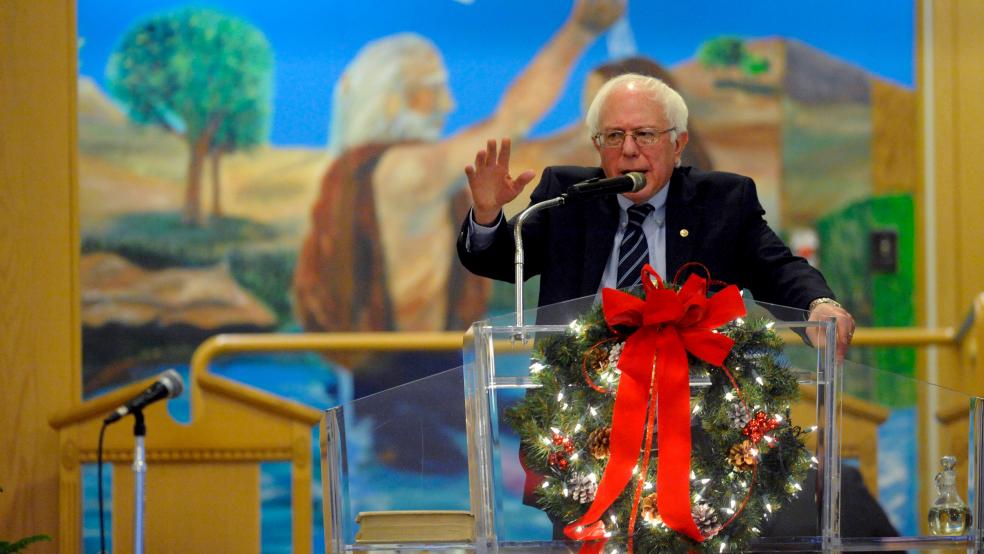Like so much that is served up in the White House mess, the Executive Order on religious liberty signed by the President last week is all sizzle and no ribeye.
Its purported purpose was to allow churches and pastors to endorse political candidates from the pulpit without worrying about the IRS threatening their tax-exempt status. But the order was so wimpy that, as The New York Times said, it angered many Trump supporters and perplexed innocent religious bystanders, while opponents just said: “meh!”
Related: Trump Vows to End Prohibition on Church Political Activity
Religious conservatives looking for the “liberty” not to hire or serve members of the LBGTQ community went away disappointed. Brian Brown of the National Organization for Marriage, which opposes same-sex marriage, told The Times, “In failing to deliver for people of faith, President Trump risks alienating the single constituency most responsible for his election.”
Clerical organizations like the 45,000-church National Association of Evangelicals shook their heads: Its president, Leith Anderson, said, “I don’t actually know anybody who has endorsed or who wants to endorse a politician from the pulpit.”
And the American Civil Liberties Union was so not threatened that it declined to sue over what it called “an elaborate photo op” on National Prayer Day.
The atheists did file suit, arguing that the EO gives religious nonprofits rights not afforded to other groups that are tax-exempt. In a statement, the Freedom from Religion Foundation said in part, “Trump’s order and statements signal to the Internal Revenue Service that it should not enforce the electioneering restrictions of the tax code against churches and religious organizations while permitting these restrictions to be enforced against secular nonprofits.”
Those restrictions were set in 1954 by Johnson Amendment, which encourages the IRS to threaten the tax-exempt status of houses of worship that endorse a political candidate or party. But it has rarely been invoked.
Related: Trump's Religious Freedom Order May Give Opponents an Unintended Boost
Now the IRS, always wary of the amendment, will have even less of an incentive to call out a church for playing politics.
And that’s O.K.
If priests, rabbis, imans, pastors, nuns, monks and their religious institutions want to use their use their bully pulpits to bully congregants into voting a certain way, they should be free to do so. After all, no one is forcing folks to sit on a hard bench and listen to them.
However, like every other tax-paying American, those with God on their side should pay to play politics. Liberty isn’t a free lunch.
Of course, it is a pipe dream to imagine that deity-hugging politicians might ever remove the tax exemption granted to religious entities: In many parts of the country, that would be tantamount to burning the flag on the Fourth of July or kicking a three-legged puppy.
But there was a reason that tax exemptions for religious groups were blessed by the Founders. In the 1970 case Walz v. Tax Commission of the City of New York, the U.S. Supreme Court, citing the Establishment Clause of the First Amendment, upheld the tax exemptions because it said they reinforced the desired separation of church and state.
In the majority opinion, Chief Justice Warren Burger wrote: ‘‘[W]e will not tolerate either governmentally established religion or governmental interference with religion.’’
What about religious interference with the government?
Once religions become full-metal-jacket political combatants, it is they who cross the line between God and Caesar.
Related: If Trump's Tax Plan Passes, Here Are the Deductions and Breaks You Could Lose
At a signing in the Rose Garden, Trump said, “We are giving churches their voices back.”
Fine. Now pay for the megaphone.
Either tax all religious organizations, period. Or tax those that want a full-throated engagement in the political process by endorsing candidates and parties, setting up political-action committees and shuttling the faithful to the polls. And let those that want to retain their exemptions opt out.
By not taxing religious institutions, the government is in effect subsidizing them. A 2012 study figured that federal subsidies amounted to about $71 billion – or $75 billion in current dollars.
That would cover about one-third of the interest payments on the national debt.






